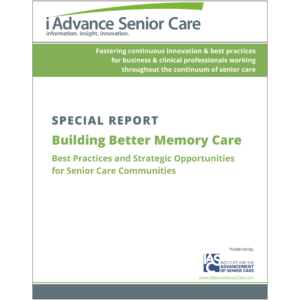Word-matching test may help determine risk for Alzheimer’s disease
The brain’s ability to associate words and recall objects may be an indicator in the early progression of Alzheimer’s disease, according to new research published in the Journal of Alzheimer’s Disease.
Researchers at the Center for BrainHealth at the University of Texas at Dallas found individuals with mild cognitive impairment (MCI) were at twice the risk of progressing to Alzheimer’s. MCI is the state between healthy aging and Alzheimer’s, and aMCI is a specific type characterized by deficits in episodic memory.
Researchers used electroencephalogram (EEG) to measure 16 individuals with aMCI and 17 age-matched healthy controls. Participants were given pairs of words that either described features of an object or were random. For example, “humps” and “desert” would evoke the memory of the word “camel,” but “humps” and “monitor” would be considered a random pair. Participants were then asked to whether the pair conjured any particular object memory.
The signature sign of Alzheimer’s disease is impaired episodic memory, the ability to retain new memories such as recent conversations, events or upcoming appointments. But researchers also identified a specific variation in brain waves when participants accessed their semantic memory, long-term memory that represents general knowledge and concepts. Individuals with aMCI were less accurate and slower to complete semantic memory tasks. Delayed neural activity was found to be directly related to the severity of cognitive impairment.
“The majority of EEG research in aMCI has focused on looking at the mind ‘at rest,’ but we are looking at the brain while it is engaged in the object memory retrieval process,” said study lead author Dr. Hsueh-Sheng Chiang in a press release. “We think this might be more sensitive and more specific in pointing out certain cognitive deficits, in this case semantic memory, than other non-EEG methods available, because EEG reflects direct neural activity.
“This protocol could potentially provide complementary information for diagnosis of pre-dementia stages including MCI and identify neural changes that can occur in cases of Alzheimer’s disease,” said Chiang, a postdoctoral fellow at UT Southwestern Medical Center who was a research doctoral student at the Center for BrainHealth at the time of the study.
The research on MCI groups is a promising start, said Dr. John Hart Jr., Medical Science Director at the Center for BrainHealth and Distinguished Chair in Neuroscience and the Jane and Bud Smith Distinguished Chair, the study's lead author, in a press release. “The long-term goal is whether this can be applied to individual patients one day.”

Nicole was Senior Editor at I Advance Senior Care and Long Term Living Magazine 2015-2017. She has a Journalism degree from Kent State University and is finalizing a master’s degree in Information Architecture and Management. She has extensive studies in the digital user experience and in branding online media. She has worked as an editor and writer for various B2B publications, including Business Finance.
Related Articles
Topics: Alzheimer's/Dementia , Articles











